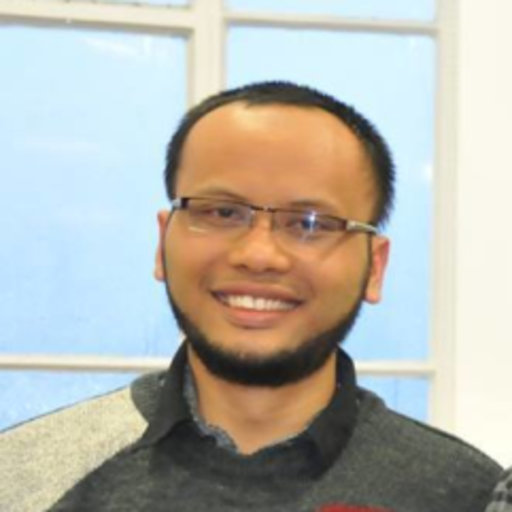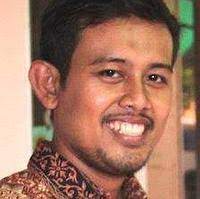Localising Global Standards in Toba, Indonesia Through a Tourist-Centric Perspective of UNESCO Guidelines
DOI:
https://doi.org/10.23917/forgeo.v38i1.3022Keywords:
Geo-tourism, UNESCO recommendations, Sustainable Tourism Development, Tourist feedback, Toba Geo-tourismAbstract
This study examines the response to and support of the UNESCO recommendations on behalf of geo-tourism using the actual perspectives of tourists visiting the Toba region. The study employed a detailed map of Toba Geo-tourism in the Sumatra Utara Province, Indonesia, to provide a comprehensive understanding. The research was underpinned by a random sampling approach, gathering responses from a broad spectrum of tourists. The results captured an optimistic landscape, demonstrating a clear synergy between the UNESCO recommendations and the sentiments of the tourists. Not only did the guidelines resonate, but there was also a palpable feeling among tourists to either extend their stay or make a subsequent visit, provided the recommendations were implemented holistically. This study stresses the value of adopting and localising global sustainable tourism standards to suit a region such as Toba’s unique attributes and tourist expectations. By means of this research, we aim to amplify that dialogue, charting a path for Toba and similar regions to embrace a future that is both ecologically sensitive and visitor centric.
Downloads
References
Aall, C., & Koens, K. (2019). The Discourse on Sustainable Urban Tourism: The Need for Discus-sing More Than Overtourism. In Sustainability, 11(15), 1-12. doi: 10.3390/su11154228.
Akbulut, M., Sümer, Ö., Akal, C., & İnaner, H. (2023). Evaluating Geological Heritage Around UNESCO World Heritage Assets: a Study from the Dikili and Madra Mountain (Western Anatolia, İzmir, Türkiye). Geoheritage, 15(2), 59. doi: 10.1007/s12371-023-00821-0.
Atkins, J. F., Atkins, B., Maroun, W., Barone, E., & Gozman, D. (2023). Conservation through con-versation? Therapeutic engagement on biodiversity and extinction between NGOs and companies. Business Stra-tegy and the Environment, 32(5), 2631–2647. doi: 10.1002/bse.3144.
Băbăț, A.F., Mazilu, M., Niță, A., Drăguleasa, I.-A., & Grigore, M. (2023). Tourism and Travel Com-petitiveness Index: From Theoretical Definition to Practical Analysis in Roma-nia. Sustainability, 15(13), 10157. doi: 10.3390/su151310157.
Cameron, C. (2020). The UNESCO imprimatur: creating global (in)significance. International Jour-nal of Heri-tage Studies, 26(9), 845–856. doi: 10.1080/13527258.2020.1746923.
Chen, H.C., Tseng, T.P., Cheng, K., Sriarkarin, S., Xu, W., Ferdin, A. E. J., Nguyen, V. V, Zong, C., & Lee, C.-H. (2021). Conducting an Evaluation Framework of Importance-Performance Analy-sis for Sustai-nable Forest Management in a Rural Area. In Forests, 12(10), 1-20. doi: 10.3390/f12101357
Chen, L., Zhou, R., Chang, Y., & Zhou, Y. (2021). Does green industrial policy promote the sustai-nable growth of polluting firms? Evidences from China. Science of The Total Environment, 764, 142927. doi: 10.1016/j.scitotenv.2020.142927.
Chesner, C. A., Barbee, O. A., & McIntosh, W. C. (2020). The enigmatic origin and emplacement of the Samo-sir Island lava domes, Toba Caldera, Sumatra, Indonesia. Bulletin of Volcanology, 82(3), 26. doi: 10.1007/s00445-020-1359-9.
Citaristi, I. (2022). United Nations Educational, Scientific and Cultural Organization—UNESCO. In The Euro-pa Directory of International Organizations, 2022, 369–375.
Deoliveira, R. A., Baracho, R. M. A., & Cantoni, L. (2022). The perception of UNESCO World He-ritage Sites’ managers about concepts and elements of cultural sustainability in tourism. Journal of Cultural Heri-tage Management and Sustainable Development, 2044-1266. doi: 10.1108/JCHMSD-03-2021-0058.
Dessart, L., & Standaert, W. (2023). Strategic storytelling in the age of sustainability. Business Hori-zons, 66(3), 371–385. doi: 10.1016/j.bushor.2023.01.005.
Dossantos, N. A. S. F. (2021). Crossroads between city diplomacy and city branding towards the future: case study on the film cities at UNESCO Creative Cities Network. Place Branding and Pu-blic Diplomacy, 17(1), 105–125. doi: 10.1057/s41254-020-00174-3.
Drăguleasa, I. A., Niță, A., and Mazilu, M. (2023). Capitalization of Tourist Resources in the Post-COVID-19 Period—Developing the Chorematic Method for Oltenia Tourist Destination, Roma-nia. Sustainability. 15(3), 1-31. doi: 10.3390/su15032018.
Ellerbrock, M. J., and Hite, J. C. (1980). Factors Affecting Regional Employment in Tourism in the Unit-ed States. Journal of Travel Research, 18(3), 26–32. doi: 10.1177/004728758001800305.
Iliev, D. (2020). The evolution of religious tourism: Concept, segmentation and development of new identities. Journal of Hospitality and Tourism Management, 45, 131–140. doi: 10.1016/j.jhtm.2020.07.012.
Jackson, T., & Victor, P. A. (2019). Unraveling the claims for (and against) green growth. Science, 366(6468), 950-951. doi: 10.1126/science.aay0749 .
Javed, S., & Chattu, V. K. (2020). Strengthening the COVID-19 pandemic response, global lea-dership, and international cooperation through global health diplomacy. Health Promotion Perspec-tives, 10(4), 300–305. doi: 10.34172/hpp.2020.48.
Katelieva, M., Muhar, A., & Penker, M. (2020). Nature-related knowledge as intangible cultural he-ritage: safeguarding and tourism utilisation in Austria. Journal of Tourism and Cultural Change, 18(6), 673–689. doi: 10.1080/14766825.2019.1693581.
Kenterelidou, C., & Galatsopoulou, F. (2021). Sustainable Biocultural Heritage Management and Communica-tion: The Case of Digital Narrative for UNESCO Marine World Heritage of Outstanding Universal Va-lue. In Sustainability, 13(3), 1-32. doi: 10.3390/su13031449.
Khan, I., Hou, F., Zakari, A., Irfan, M., & Ahmad, M. (2022). Links among energy intensity, non-linear finan-cial development, and environmental sustainability: New evidence from Asia Pacific Economic Coope-ration countries. Journal of Cleaner Production, 330, 129747. doi: 10.1016/j.jclepro.2021.129747.
Li, J., Krishnamurthy, S., Pereira Roders, A., & van Wesemael, P. (2020). Community participation in cultural heritage management: A systematic literature review comparing Chinese and international practices. Ci-ties, 96, 102476. doi: 10.1016/j.cities.2019.102476.
Li, M., Liu, T., & Qiu, S. (2020). Governance of Sustainable Tourism Development in China. Jour-nal of Chi-na Tourism Research, 16(2), 261–278. doi: 10.1080/19388160.2019.1637317.
Lopez, K. J., & Sène-Harper, A. (2023). Leisure research amid socio-political unrest: A reflection on struggle in turbulent times. Leisure/Loisir, 47(1), 7–26. doi: 10.1080/14927713.2022.2141837.
Mahadevan, R., & Zhang, J. (2022). Tourism in UNESCO World Heritage Site: Divergent Visitor Views to Li-jiang on Experiences, Satisfaction and Future Intentions. Journal of China Tourism Research, 18(3), 670–688. doi: 10.1080/19388160.2021.1965061.
Mazilu, M., Niță, A., Drăguleasa, I. A., & Mititelu-Ionuș, O. (2023). Fostering Urban Destination Prosperity through Post COVID-19 Sustainable Tourism in Craiova, Roma-nia. Sustainability, 15(17), 13106. doi: 10.3390/su151713106.
Migoń, P. (2021). Granite Landscapes, Geodiversity and Geoheritage—Global Context. In Heritage, 4(1), 198-219. doi: 10.3390/heritage4010012.
Mousazadeh, H., Ghorbani, A., Azadi, H., Almani, F. A., Zangiabadi, A., Zhu, K., & Dávid, L. D. (2023). Developing Sustainable Behaviors for Underground Heritage Tourism Management: The Case of Per-sian Qanats, a UNESCO World Heritage Property. In Land, 12(4), 1-17. doi: 10.3390/land12040808.
Mustafa, H., Omar, B., Mukhiar, S. N. S., Park, O., & Zainol, W. W. (2023). Exploring Island Des-tination Competitiveness of Langkawi and Jeju UNESCO Global Geopark: Assessment from Inter-national Tourists and Tourism Practitioners. Tourism Planning & Development, 20(6), 1054–1081. doi: 10.1080/21568316.2021.1979637.
Muzambiq, S., Walid, H., Ganie, T. H., & Hermawan, H. (2021). The Importance of Public Educa-tion and In-terpretation in the Conservation of Toba Caldera Geoheritage. Geoheritage, 13(1), 1-9. doi : 10.1007/s12371-020-00523-x.
Nguyen, V. V., Phan, T. T. T., & Chun-Hung, L. (2022). Integrating multiple aspects of human–elephant con-flict management in Dong Nai Biosphere Reserve, Vietnam. Global Ecology and Con-servation, 39(2022), e02285. doi: 10.1016/j.gecco.2022.e02285
Pahl-Wostl, C., Odume, O. N., Scholz, G., De Villiers, A., & Amankwaa, E. F. (2023). The role of crises in transformative change towards sustainability. Ecosystems and People, 19(1), 2188087. doi: 10.1080/26395916.2023.2188 087.
Pasanchay, K., & Schott, C. (2021). Community-based tourism homestays’ capacity to advance the Sustai-nable Development Goals: A holistic sustainable livelihood perspective. Tourism Management Pers-pectives, 37(2021), 100784. doi: 10.1016/j.tmp.2020.100784.
Phakdee-Auksorn, P., Sastre, R., Pattaro, P., Soonsan, N., & Dachum, P. (2022). An Analysis of In-ternational Tourist Motivations Towards Phuket Food Attractiveness. Journal of Quality Assurance in Hospitality & Tourism, 2(3),1–28. doi: 10.1080/1528008X.2023.2216953.
Radisic, B.B., & Basan, L. (2007). The logistics of selling a destination’s tourism product. Tourism Hospitality Management, 13(3), 725–732. doi: 10.20867/thm.13.3.18.
Rehman Khan, H. U., Lim, C. K., Ahmed, M. F., Tan, K. L., & Bin Mokhtar, M. (2021). Systematic Review of Contextual Suggestion and Recommendation Systems for Sustainable e-Tourism. In Sus-tainability, 13(15), 1-27. doi: 10.3390/su13158141.
Rodrigues, J., Neto de Carvalho, C., Ramos, M., Ramos, R., Vinagre, A., & Vinagre, H. (2021). Geoproducts – Innovative development strategies in UNESCO Geoparks: Concept, implementation methodology, and case studies from Naturtejo Global Geopark, Portugal. International Journal of Geoheritage and Parks, 9(1), 108–128. doi: 10.1016/j.ijgeop.2020.12.003.
Routledge H. Á., López-Gutiérrez, J., Moreno M. L., Llorente, I. M., Fensham, R., Fernández, M., Ghanem, M., Salman, K., Sánchez, F. J. Á., Gallego, R. N., Corral, M. M., Galindo, E., Chamizo, B. M., & Laf-touhi, N.-E. (2023). Geodiversity of Las Loras UNES-CO Global Geopark: Hydrogeological Signifi-cance of Groundwater and Landscape Interaction and Conceptual Model of Functioning. In Resources, 12(1), 1-32. doi: 10.3390/resources12010014.
Rosentraub, M. S., & Joo, M. (2009). Tourism and economic development: Which investments pro-duce gains for regions?. Tourism Management, 30(5), 759–770. doi: 10.1016/j.tourman.2008.11.014
Settimini, E. (2021). Women’s representation and participation in UNESCO heritage discourse. In-ternational Journal of Heritage Studies, 27(1), 1–15. doi: 10.1080/13527258.2020.1763428.
Shasha, Z. T., Geng, Y., Sun, H., Musakwa, W., & Sun, L. (2020). Past, current, and future perspec-tives on eco-tourism: a bibliometric review between 2001 and 2018. Environmental Science and Pollution Research, 27(19), 23514–23528. doi: 10.1007/s11356-020-08584-9.
Sigala, M. (2019). Developing and Branding a Wine Destination Through UNESCO World Heritage Listing: The Case of the Mount Lofty Ranges Agrarian Landscape BT - Wine Tourism Destination Manage-ment and Marketing: Theory and Cases. Wine Tourism Destination Management and Marketing, 113–134. doi: 10.1007/978-3-030-00437-8_9.
Stolz, J., & Megerle, H. E. (2022). Geotrails as a Medium for Education and Geotourism: Recom-mendations for Quality Improvement Based on the Results of a Research Project in the Swabian Alb UNESCO Global Geopark. In Land, 11(9), 1-27. doi: 10.3390/land11091422.
Suryawan, I. W. K., & Lee, C.-H. (2023). Citizens’ willingness to pay for adaptive municipal solid waste ma-nagement services in Jakarta, Indonesia. Sustainable Cities and Society, 97, 104765. doi: 10.1016/j.scs.2023.104765.
Sutrisno, A. D., Chen, Y.J., Suryawan, I. W., & Lee, C.-H. (2023). Establishing Integrative Frame-work for Sustainable Reef Conservation in Karimunjawa National Park, Indonesia. In Water, 15(9), 1-16. doi: .3390/w15091784.
Vargas-Hernández, J. G., Pallagst, K., & Zdunek-Wielgołaska, J. (2023). Urban Green Spaces as a Component of an Ecosystem BT - Sustainable Development and Environmental Stewardship: Glo-bal Initiatives Towards Engaged Sustainability. Springer International Publishing, 165–198. doi: 10.1007/978-3-031-28885-2_8.
Vu, H. D., Nguyen, N. T. P., Ngo, Y. T. H., & Le, T. D. (2022). Geotourism Current State and Fu-ture Pros-pects: a Case Study in the Cao Bang Unesco Global Geopark, Vietnam. Geojournal of Tou-rism and Geosites, 43(3), 1063–1070. doi: 10.30892/gtg.43327-921.
Wanner, A., Seier, G., & Pröbstl-Haider, U. (2020). Policies related to sustainable tourism – An as-sessment and comparison of European policies, frameworks and plans. Journal of Outdoor Recrea-tion and Tourism, 29, 100275. doi: 10.1016/j.jort.2019.100275.
Werther, C. (2022). Leveraging Landscape: The First Four Years of UNESCO Global Geopark Odsherred BT - Economics and Management of Geotourism. Springer International Publishing, 47–64. doi : 10.1007/978-3-030-89839-7_3.
Wong, I. A., Lin, Z. (CJ), & Kou, I. E. (2023). Restoring hope and optimism through staycation programs: an application of psychological capital theory. Journal of Sustainable Tourism, 31(1), 91–110. doi: 10.1080/09669582.2021.1970172.
Downloads
Submitted
Accepted
Published
Issue
Section
License
Copyright (c) 2024 I Wayan Koko Suryawan, Iva Yenis Septiariva, Sapta Suhardono, Mega Mutiara Sari, Rachmat Mulyana, Nova Ulhasanah, Nur Novilina Arifianningsih, Wisnu Prayogo, Dwinto Martri Aji Buana

This work is licensed under a Creative Commons Attribution 4.0 International License.

















